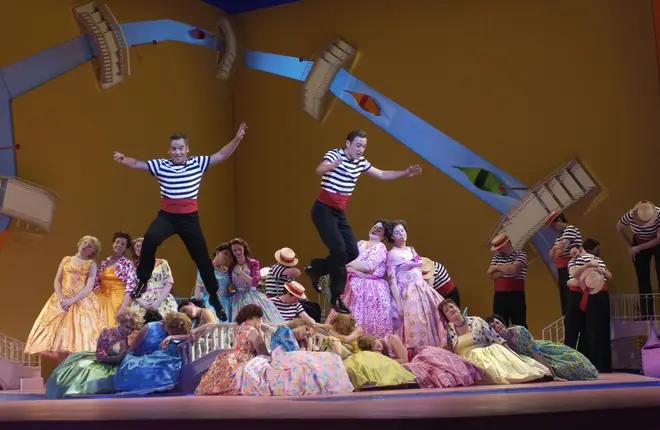On Air Now
The Classic FM Hall of Fame with Anne-Marie Minhall 12pm - 3pm
19 July 2022, 10:05 | Updated: 12 October 2023, 21:03
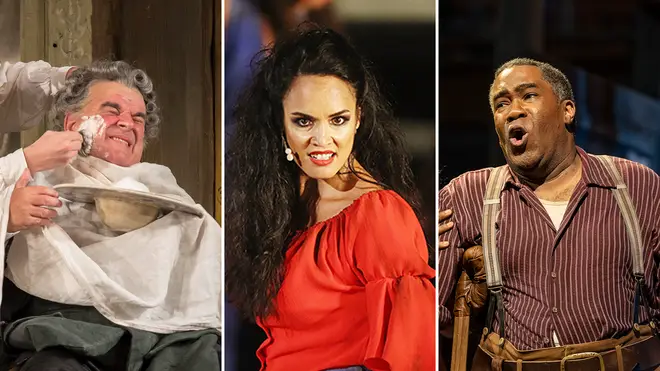
So many operas, where do we start? Right here, is the answer. We asked five of our Classic FM presenters for their favourite opera recommendations and whittled them down to a top 20.
From Puccini to Bizet, here are the 20 operas our Classic FM presenters chose as the greatest of all time!
Read more: 25 best opera singers of all time
When it was first performed in Paris, the scandalous story of Georges Bizet’s Carmen shocked 1875 audiences with its wild tale of a single-minded woman who knew exactly what she wanted, and would stop at nothing to get it. Despite an unsuccessful run in France, it achieved great popularity throughout the rest of Europe within its first decade and remains a firm opera house favourite to this day, providing us with the ‘Habañera’ and the ‘Toreador Song’ – two of the most popular opera arias today.
Anne-Marie Minhall: “Carmen is one of the strongest roles for a feisty mezzo soprano. Hits from start to finish and a great story of love, jealousy, tragedy, and a woman remaining true to herself.”
John Suchet: “Carmen was ground-breaking at the time, seducing the hapless Don Jose to get what she wants, although she knows it will destroy his career. Packed with memorable tunes – who does not know the Toreador’s Song? – it is rightly recognised today as one of the finest of all operas.”
Read more: Did you know that Carmen had a completely disastrous premiere?
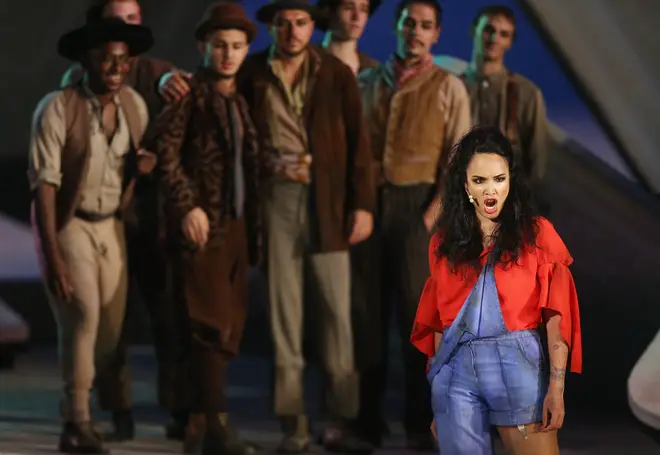
Il trovatore, or The Troubadour was premiered in Rome on 19 January 1853, with a libretto by Salvadore Cammarano. It arrived amidst a flurry of musical activity in the early 1850s, as Verdi was busy with Rigoletto, and four other opera projects, around the time. Music you might recognise from it includes the ‘Anvil Chorus’ which, as the title might suggest, depicts anvils being struck at dawn.
Alexander Armstrong: “Il trovatore holds a sentimental place in my heart. When I was little, I used to sing the Anvil Chorus with my brother and sister, but we never knew the words so we just made up our own!”
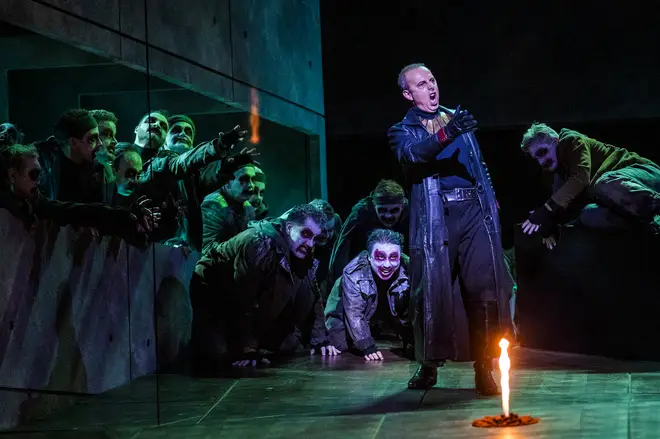
Based on a set of 1851 short stories, Puccini’s La bohème is set in the Latin quarter of early 19th-century Paris. A love story at its heart, Mimì and Rodolfo are sent on a journey of heartbreak and hardship that gives rise to some of the most heart-wrenching music ever written, including ‘O soave fanciulla’ and more.
Anne-Marie Minhall: “This Puccini opera about young bohemians has everything. The joys of love and sorrow and some of the most memorable melodies of all time.”
Tim Lihoreau: “A great first opera experience, where the combination of a good staging and Puccini’s genius for tunes can combine to take you far away. ‘Che gelida manina’, Musetta’s Waltz and ‘Si, mi chiamano Mimi’ are just heartbreakers which make you feel as if you’re there in Paris with the lovers.”
Read more: Best Puccini operas of all time

La bohème - O soave fanciulla (Nicole Car, Michael Fabiano; The Royal Opera)
The premiere to Verdi’s Rigoletto almost didn’t happen. At the time it was written, Austrian censors were in control of the theatres in the north of Italy and they objected to some of the more controversial moments that arguably make the opera the powerful work it is. It finally received its premiere in Venice, 1851, to great success. The aria ‘La donna è mobile’ was sung in the streets the following morning, and the opera attracted praise from cultural greats such as Rossini and the playwright George Bernard Shaw, frustrating Victor Hugo, author of Le roi s’amuse which the opera was based on.
John Suchet: “The father-daughter relationship occurs and recurs in Verdi’s operas, and nowhere more dramatically than in Rigoletto. Here a father’s unconditional love for his daughter unwittingly causes her death. When Rigoletto opens the sack to find the body of his daughter, not the Duke whom he had paid to have killed, the howl he emits is one of the most heart-rending moments in all opera.”
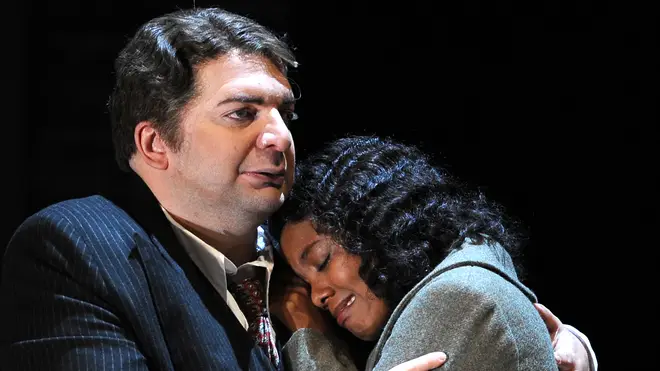
Puccini’s first attempt at Madam Butterfly in February 1904 didn’t quite go to plan. Like many composers before him (and since), Puccini had left it a little too late to complete the work and even his star-studded cast couldn’t pull it off with such little rehearsal. Three months later, and Madam Butterfly returned to the stage, this time with a third act and the famous ‘Humming Chorus’. It was an immediate success, and has been ever since.
Tim Lihoreau: “This is a beautiful, tragic love story. For me, no one nails opera like Puccini and ‘Un bel dì’ is possibly the essence of romantic opera.”
Myleene Klass: “There’s a little bit of musical magic sprinkled over every opera Puccini wrote, and this is the best one of them all. An honourable mention also goes to ‘Nessun dorma’ from Turandot – what a tearjerker!”
Read more: Nessun Dorma: a precise and reasoned breakdown of why it's the most harrowing aria out there
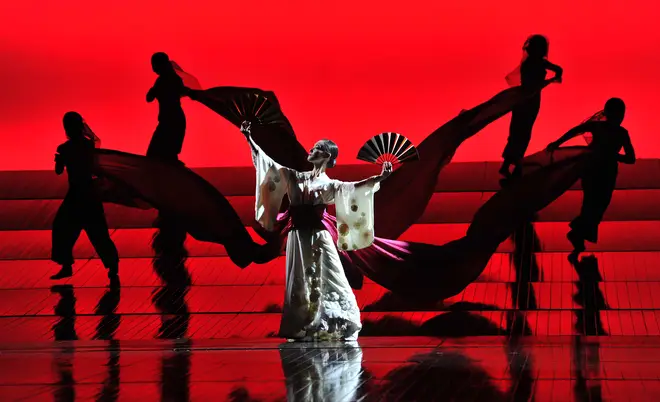
Fidelio is the only opera Beethoven would ever write, and it took him several attempts to realise his vision. By the third and final version, his work was complete. And what a work it is. Premiered in Vienna in November 1805 and based on a true story from the French Revolution, it’s a tale of love, deception, mistaken identity and a daring rescue.
John Suchet: “The greatest opera ever written, by the greatest composer who ever lived, obviously. Listen to the ‘Prisoner’s Chorus’ as the ultimate hymn to freedom, and ‘O! namenlose Freude’ as the ultimate hymn to the joy of married love. The quartet in Act I, ‘Mir ist so wunderbar’, four different voices expressing four different emotions, is a moment in opera unequalled before or since.”

Beethoven's Fidelio : Prisoners' Chorus
Mozart’s 1791 opera The Magic Flute is perhaps best known for its close association with Freemasonry, a connection the composer shared with the opera’s librettist Emanuel Schikaneder. As such, the intricate score and storyline are strewn with messages and hidden meanings, making for a fascinating discovery with every new encounter. And of course, it’s also the opera that gifted us the ever-iconic ‘Queen of the Night’ aria.
Anne-Marie Minhall: “The first opera I ever saw. A revelation. A pantomime. A belter. Something new to discover in the plot every time you see it or listen to Mozart’s masterpiece.”

What is the Queen of the Night singing about?
With the libretto written by his brother, Ira, and author DuBose Heyward, George Gershwin’s second and greatest opera Porgy and Bess was premiered in Boston, 1935, with a cast of classically-trained African-American singers, before making its way onto Broadway. Music from the opera has even infiltrated other genres, with many celebrated musicians including Billie Holiday, Ella Fitzgerald, Nina Simone, Louis Armstrong and more recording their own versions of ‘Summertime’, ‘I Loves You, Porgy’, and others.
Tim Lihoreau: “The first real American folk-jazz opera and packed full of ground-breaking, amazing music. My favourite version of this is not from any opera house, though: it’s Ella Fitzgerald and Louis Armstrong singing Porgy and Bess. Stunning and unmissable.”
Read more: Lana Del Rey covers Gershwin’s ‘Summertime’ to support New York and LA Philharmonics amid pandemic
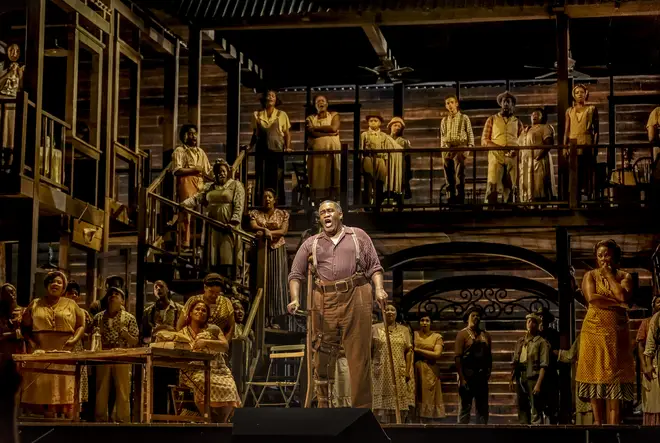
For Tannhäuser, Richard Wagner played the role of both librettist and composer, writing words and music for his 1845 opera. In fact, for Wagner, calling it an ‘opera’ didn’t do it justice. He referred to the work as a ‘romantic grand opera’ and later even a ‘consummated drama’. The overture alone is so brilliant that it is frequently performed as a standalone concert piece.
John Suchet: “The trouble with Wagner is that they always die in the end. Wagner has a recurring theme that only through death can a human being experience pure and true love (which is why they always die) – a noble idea that he himself singularly failed to follow in his own life. Ignore the character of this appalling man, and immerse yourself in a new art form that he invented, the Gesamtkunstwerk, the total work of art.”
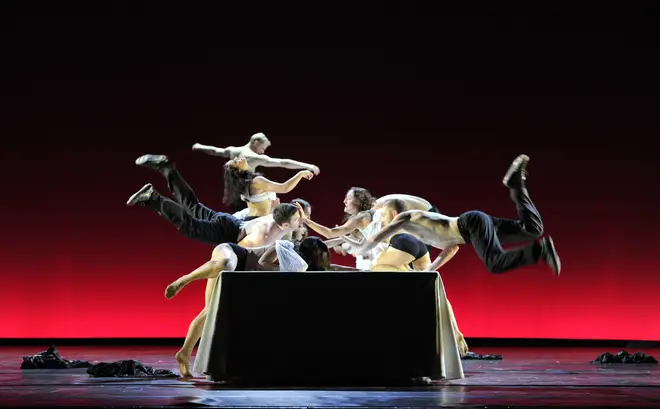
Puccini’s Tosca is drama from start to finish. Set in Rome in 1800, exactly a century before it was premiered in the same city, the entire story takes place in under 24 hours. A fairly one-sided love triangle between Tosca, Cavaradossi and the villainous police chief Scarpia leads our title character to a crossroads, where she must choose between her two suitors or risk losing true love.
Tim Lihoreau: “One of the most impressive ‘in opera house’ experiences with magnificent ‘Roman castle’ settings. Franco Zeffirelli’s production really gets the scale across and even takes the breath away in the ‘Te Deum’ scene. It’s full of sumptuous music from Puccini at his best:’ Vissi d’arte’, ‘Recondita armonia’ and ‘E lucevan le stelle’.”
Alexander Armstrong: “I had the joy of seeing Tosca at the Royal Opera House in 2021, when Freddie de Tommaso played Mario Cavaradossi, the main love interest. It was just electrifying!”

Woman sings 'Vissi d'arte' from Puccini's Tosca with 3 curious alpacas
Premiered in Prague on 29 October 1787, Mozart’s Don Giovanni was the second of three collaborations between the composer and his librettist, Lorenzo Da Ponte. Making its stage debut at the height of Mozart’s popularity, the opera has been a favourite among audiences, critics, and even other composers including Tchaikovsky. Artfully blending light and dark, Mozart uses Leporello’s comedy in the Catalogue Aria (‘Madamina, il catalogo è questo’) to provide light relief against the eternal damnation at the opera’s climax.
Myleene Klass: “Don Giovanni has the amazing ability to one moment make your cheeks hurt from laughing, before you’re pinned to the back of your seat as the orchestra drags the scoundrel to hell. It’s such an intense experience, and I don’t think you can ever get enough.”

Don Giovanni – Catalogue Aria (Gerald Finley; The Royal Opera)
Written by Italian composer and librettist duo, Giuseppe Verdi and Antonio Ghislanzoni, Aida is set in Ancient Egypt, having been commissioned by Cairo’s Khedivial Opera House, where it received its premiere on 24 December 1871. It’s one of the best-loved operas today, having been performed well over 1,000 times at New York’s Metropolitan Opera alone. Its top musical moment has to be the Grand March, celebrating Radamès’ victory in battle. There’s also a sublime aria for Aida herself, in ‘O patria mia’.
Alexander Armstrong: “Aida is just full of beautiful tunes… if you ever get a chance to see it in Verona in the open air, you must go.”
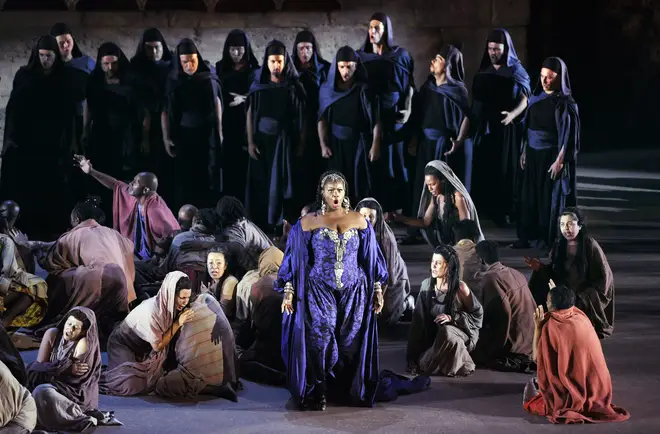
One of the greatest operas to emerge from the 20th century, Philip Glass’ 1983 Akhnaten completes his biographic opera trilogy which also explored the lives of Einstein and Gandhi. Unlike most other operas, which are usually sung in Italian, German, French or English, much of the music in this opera is sung in the two men’s original languages: Egyptian, Biblical Hebrew and Akkadian.
Anne-Marie Minhall: “One of the most extraordinary and mesmerising operas. A modern masterpiece by Philip Glass which tells the story about a revolutionary pharaoh.”
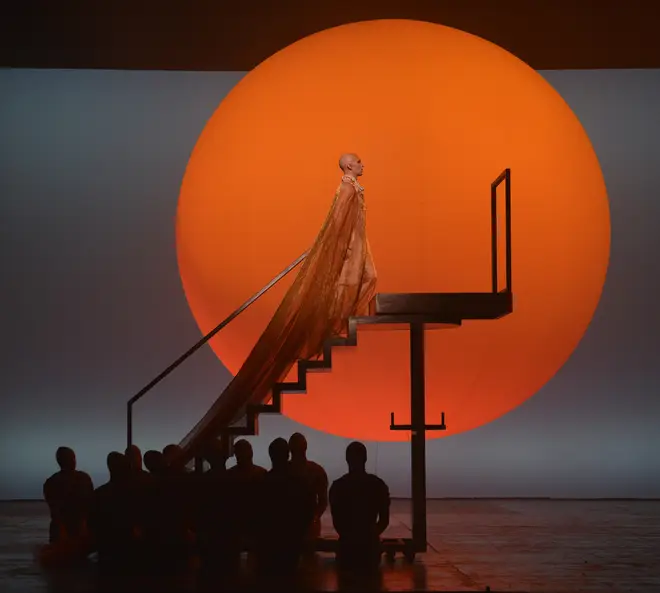
With libretto written by his long-term collaborator Hugo von Hofmannsthal, Strauss’ opera Der Rosenkavalier, or The Knight of the Rose, is arguably his greatest. Premiered in Dresden in 1911, the work spotlights the female operatic voice with three of the four main characters played by women, including Count Octavian.
John Suchet: “Der Rosenkavalier is a work of female empowerment – the lecherous Baron Ochs is bested by a female plot, the lead characters are female (including the young male lover Octavian), and the aria sung by the ageing Marschallin, who has lost Octavian, calling for the clocks to be stopped to prevent the passage of time, is heart-stopping. The final two words she sings in the opera, as the young lovers depart, ‘Ja, ja,’ properly sung, should contain a lifetime of love and regret.”
Alexander Armstrong: “Der Rosenkavalier is Richard Strauss at his best, full of romance and humour. A real opera highlight, with some of the most moving music known to humankind.”

Final trio – DER ROSENKAVALIER Strauss – Garsington Opera
Dame Ethel Smyth’s opera The Wreckers is one of the best-known operas written by a woman, with a French libretto by Smyth’s friend and colleague Henry Brewster. The opera was premiered in a German translation in Leipzig in 1906, before being more or less neglected for most of the following century. In more recent years, it has had something of a revival, with a semi-staged performance at the Proms in 1994, through to opening Glyndebourne’s 2022 festival.
Myleene Klass: “Ethel Smyth was a force to be reckoned with, an absolute icon of her generation. From her work in the suffrage movement during the 19th and 20th centuries, to stories of her conducting a chorus of women from the window of her prison cell, using a toothbrush as a baton, she deserves every bit of recognition.”
Read more: Meet Ethel Smyth, the 20th-century composer who was also a suffragette and political activist
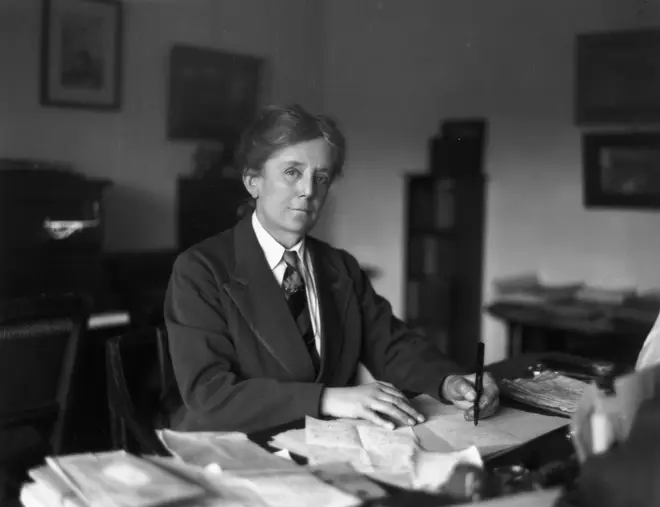
The premiere of Benjamin Britten’s opera Peter Grimes marked a momentous occasion, as it reopened Sadler’s Wells for the first time since the beginning of the Second World War. On 7 June 1945, the cast took to the stage with Britten’s own partner Peter Pears playing one of the title roles. Perhaps the best-known music from Peter Grimes today are the Four Sea Interludes, published as a suite in its own right.
Tim Lihoreau: “An opera which I enjoyed most when I saw it on the beach in Aldeburgh, freed from the four opera house walls with the Suffolk sky as a backdrop. The star that night was the moon, which appeared from behind a dark cloud just on cue for the ‘Moonlight’ Sea Interlude.”
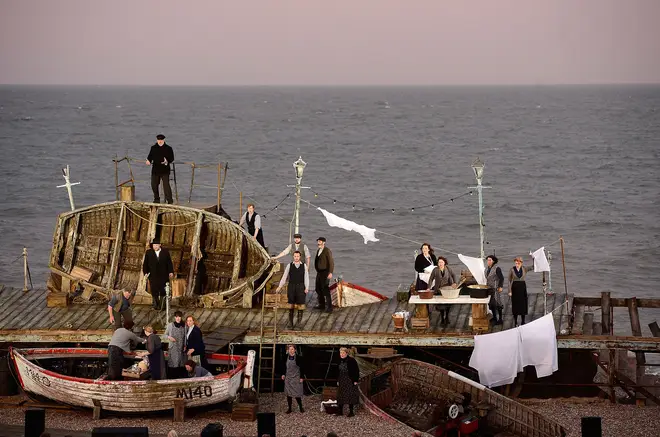
Premiered under the title Almaviva in Rome, February 1816, Rossini’s The Barber of Seville is thought by many to be one of the greatest comic operas ever written. Based on the prequel to the story that inspired Mozart’s The Marriage of Figaro, the unlikely partnership between the barber, Figaro, and a Spanish nobleman in disguise, Count Almaviva, leads to all kinds of mischief as the two aim to win Rosina’s heart from the cunning Dr Bartolo.
Anne-Marie Minhall: “A fizzing farcical feast of fun where true love prevails. Don’t forget to take a deep breath for the vocal gymnastics of ‘Largo al factotum’. Oh, and check out the story behind the disastrous premiere which included a wandering cat.”
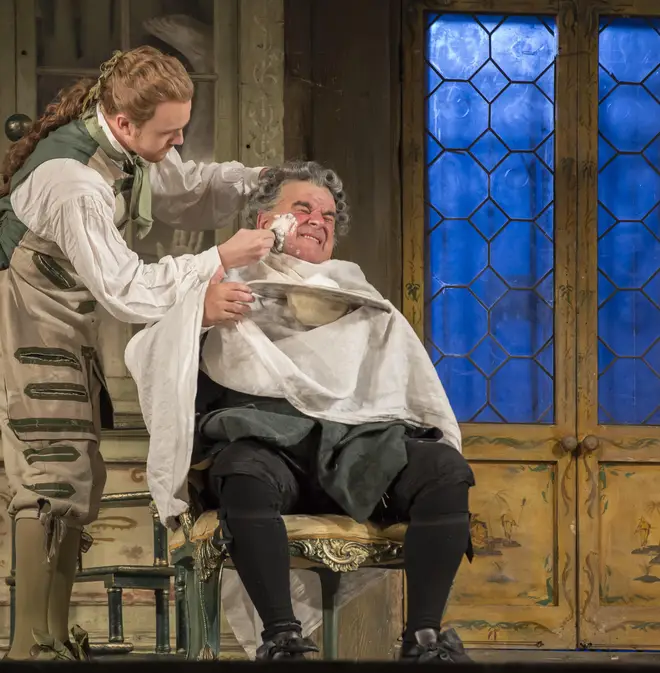
Like any good opera, Verdi’s La traviata is the story of a great love that ends in great tragedy. What sets it apart, though, is its iconic score full of memorable melodies, hummable harmonies and the demanding score for lead soprano Violetta. Musical highlights from the opera include ‘The Drinking Song’ (otherwise known as ‘Brindisi’ or ‘Libiamo, ne’ lieti calici’) and ‘Addio del passato’.
Myleene Klass: “Violetta is really the star of this opera, with such impressive range from vocal gymnastics to an almost ethereal aura in the final act. This has got to be my number one opera of all time!”

La traviata - Brindisi aka The Drinking Song (The Royal Opera)
Another of Mozart’s collaborations with Lorenzo Da Ponte, The Marriage of Figaro was premiered in Vienna, May 1786. Considered by audiences and performers alike as one of the best operas ever written, you may recognise the ‘Sull’aria’ duet between Susanna and the Countess, or the heart-wrenching aria ‘Porgi, amor’.
Anne-Marie Minhall: “It’s always satisfying to see a devious character get their comeuppance, and that’s exactly what happens to the lecherous Count Almaviva in many modern productions of Figaro. Mozart was the master of laughs, lovers and melodrama, and it’s packed into every moment of this opera.”
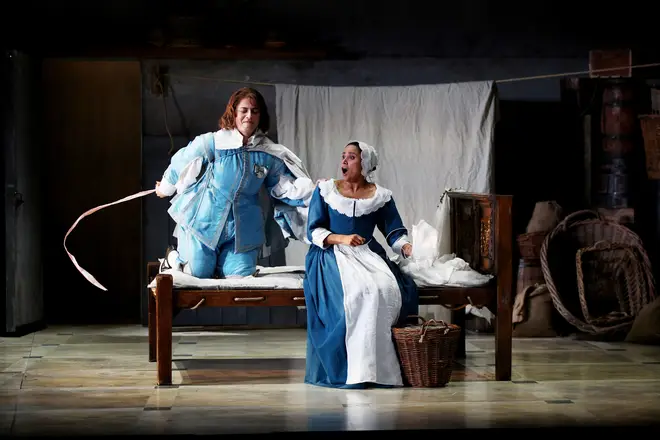
Premiered in December 1889, The Gondoliers is one of the final pieces of work to emerge from the brilliant creative partnership between dramatist W. S. Gilbert and composer Arthur Sullivan. In the second half of the 19th century, the pair brought to life 14 comic operas, including H.M.S. Pinafore, The Pirates of Penzance, and The Mikado, before parting ways. Their work was so successful in Victorian Britain that it attracted the attention of producer Richard D’Oyly Carte, who built the Savoy Theatre in 1881 to perform their works.
Alexander Armstrong: “Gilbert and Sullivan’s The Gondoliers was the first opera I ever saw. I was aged 7 and just adored it.”
